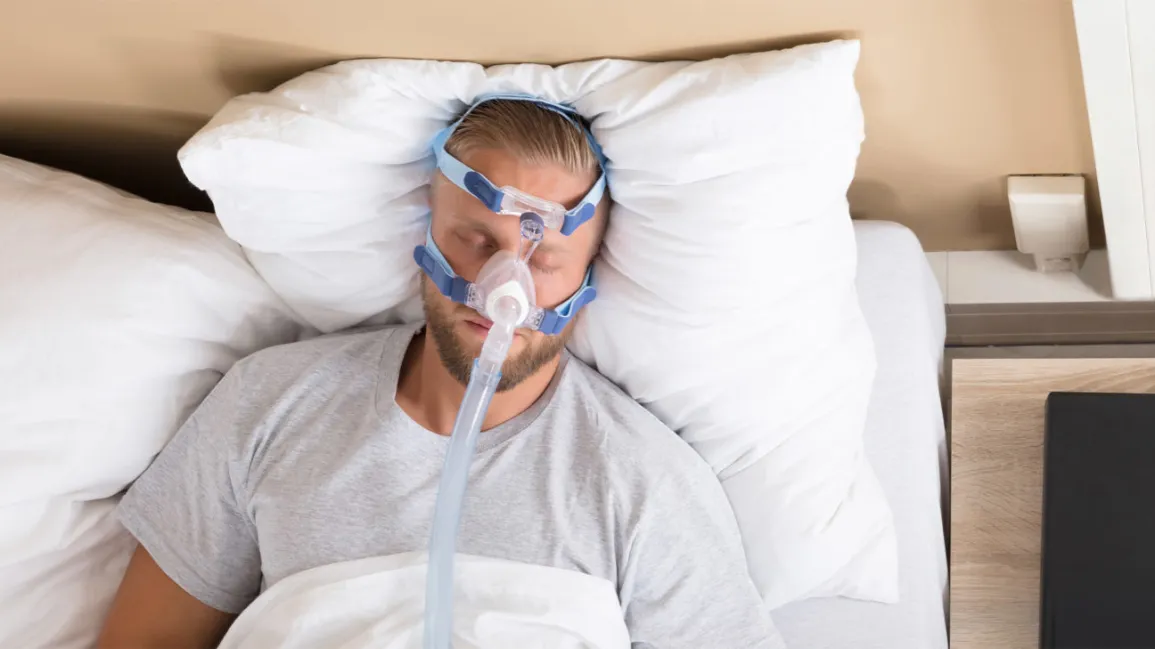Sleep apnea is a common condition that affects many individuals, especially men over the age of 40. A continuous positive airway pressure, or CPAP machine, assists patients with breathing problems in getting enough oxygen into their lungs. However, the decision is still out on whether these devices are required or even effective for most individuals with sleep apnea.
CPAP treatment is one of the most prevalent options for treating sleep apnea and other sleeping disorders. It may be important to know what type of CPAP machine you need, how it works, and what features to look for in a CPAP machine to make the most of CPAP treatment.
What Type of CPAP Machine Do You Need?
If you are new to CPAP treatment, you may be shocked to learn that many kinds of CPAP equipment exist. It is helpful first to understand how a CPAP device works to comprehend how they vary and choose the best CPAP machine.
OSA patients have breathing pauses ranging from five to 100 times each hour. These pauses occur as the muscles in your upper airway contract as you inhale. CPAP treatment maintains your airways open by supplying a stream of pressured air.
Moreover, the difference between CPAP machines is how the airflow is delivered. Though they all provide the same effective sleep treatment, your decision might significantly impact your sleep quality and personal comfort.
Your health will determine the type of CPAP you need, so consult your doctor or another healthcare expert to discover which is best for you. Because your prescription must specify which kind, you should consult with your doctor before settling on CPAP machine sales.
Auto CPAP (APAP)
Auto CPAP devices are similar to standard CPAP machines, except that their pressure will change automatically throughout your sleep if it senses that more or less is required. Your healthcare practitioner will choose a pressure range, and the APAP will adjust within that range using an algorithm. It can also handle regular, daily variations in breathing patterns, such as changing your sleeping position or having a sinus cold.
Travel CPAP Machine
Travel CPAPs are not intended for long-term use and should not be used for daily treatment unless cleared by a sleep expert. These lightweight pressure devices often weigh just a few ounces and may be readily carried in any travel bag. They provide the same air pressure and are often compatible with the same CPAP masks and CPAP supplies.
Standard CPAP Machine (Set Or Fixed Pressure)
The standard CPAP machine, often called a “fixed pressure” or “set pressure” machine, is the most popular kind of PAP. As the name implies, this equipment employs constant air pressure throughout the night.
Your sleep expert will recommend a pressure setting depending on the findings of your first sleep study.
BiPAP Machine
The Bi in BiPAP refers to “bilevel,” which means they have two pressure settings. This is useful for CPAP patients who struggle to breathe against a fixed pressure configuration.
They are frequently administered to individuals with very high air pressure or severe OSA. BiPAP devices may also assist in preventing the negative effects of high pressures, including aerophagia (the medical name for swallowing air).
What CPAP Machine Features to Look For?
While your healthcare demands decide the kind of machine, some other elements may improve the quality of your sleep and your quality of life. These aspects are crucial since they sometimes distinguish between a good night’s sleep and not using your CPAP.
Consider your lifestyle requirements before considering these CPAP treatment solutions.
Humidifier
A humidifier, which adds moisture to the air pulled in by your CPAP machine sales, is among the most prominent CPAP features. Humidification may make breathing easier and reduce symptoms such as stuffy nose, sore throat, and dry mouth. A humidifier might be a lifesaver if you breathe through your mouth or regularly suffer from allergies or congestion.
Sleep Tracking
Most CPAP devices can record therapeutic information, but some more sophisticated ones may also generate daily sleep quality evaluations!
Data typically recorded includes utilisation hours, AHI (apnea-hypopnea index), and normal pressure. This data is relevant in assisting your doctor in determining the success of your therapy and in documenting compliance. CPAP machines could store this on memory cards for a long period, but newer units can link to your smartphone through Bluetooth. This enables you to see personalised sleep health information through applications and allows your doctor to access your health data directly over the cloud.
Ramp
The Ramp option on CPAP machines allows you to start at a lower pressure and progressively increase your recommended pressure levels. This enables CPAP users to sleep well while still receiving the full advantages of their airway pressure equipment.
If you have trouble falling asleep while using your CPAP machine, the features may help you persist with your sleep apnea therapy when you choose Ramp.
Noise Level
Not all CPAP devices are built perfectly regarding sound, but decibels can be a perplexing measurement. 30 dB is considered “whisper quiet.” to put this in context.
Anything less than 30, and you’ll barely notice the sound.
Now that you know what to look for, make a list of the most important features and find the best CPAP machine for your needs! Compare them based on machine type, choices, or even price.


